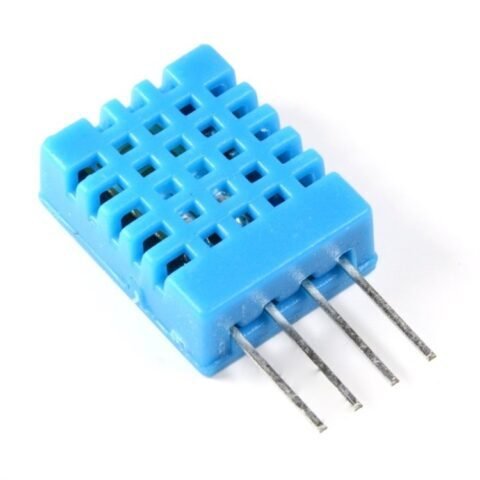Humidity is one of the most important aspects of air quality, and it’s something that all homeowners should be aware of. Too much humidity can cause mould and mildew problems, and too little humidity can lead to dry skin, lips, and hair. Fortunately, there are plenty of great humidity sensors on the market that can help you maintain a healthy home environment. In this article, we’ll discuss the importance of humidity and what you need to know about the best humidity sensors.
How do humidity sensors work?
Humidity sensors work by detecting the amount of water vapour in the air. In most cases, they work by measuring the electrical resistance of a metal film that has been exposed to water vapour. As the humidity increases, the electrical resistance of the metal film decreases. This change in resistance is detected by the humidity sensor and then transmitted to your thermostat to adjust your home’s humidity level.

What kinds of humidity sensors are there?
There are a few different types of humidity sensors on the market. The most common type is the in-line humidistat, which you can instal inside your ductwork. This type of humidity sensor measures the humidity in your home and sends data to your HVAC system to adjust your airflow and heating/cooling accordingly. Another option is a standalone humidity sensor, which you can place anywhere in your home. This type of sensor measures the humidity in the surrounding air and sends data to a display or digital thermostat. Finally, there are wireless humidity sensors, which can transmit data to a central control unit or smartphone app. These sensors are perfect for keeping track of the humidity levels in multiple rooms simultaneously.
How to choose the right humidity sensor?
Not all humidity sensors are created equal, so it’s important to know what to look for when shopping for one. Here are a few key factors to consider: Accuracy: Look for a humidity sensor that’s accurate to within 2%. This ensures that you’re getting an accurate reading of the humidity in your home.
Temperature Range: Most humidity sensors only measure humidity and temperature within a specific range (usually between 20 and 80 degrees Celsius). Make sure the sensor you choose can measure the temperature and humidity in the range of your choosing.
Response Time: How quickly does the sensor respond to changes in humidity? Look for one that responds within 15 minutes. This ensures that you’re getting an accurate reading of the current humidity in your home.
Size: Make sure to pick a humidity sensor that’s the right size for your needs. Some are small enough to be concealed in a corner, while others are larger and meant to be placed on a counter top.
Conclusion:
Maintaining a healthy humidity level in your home is key to keeping your family safe and your property in good condition. By installing a humidity sensor in your home, you can easily and accurately monitor the humidity levels and take corrective action when needed. There are a variety of different humidity sensors on the Applied Measurement, so be sure to choose the one that best meets your needs.




